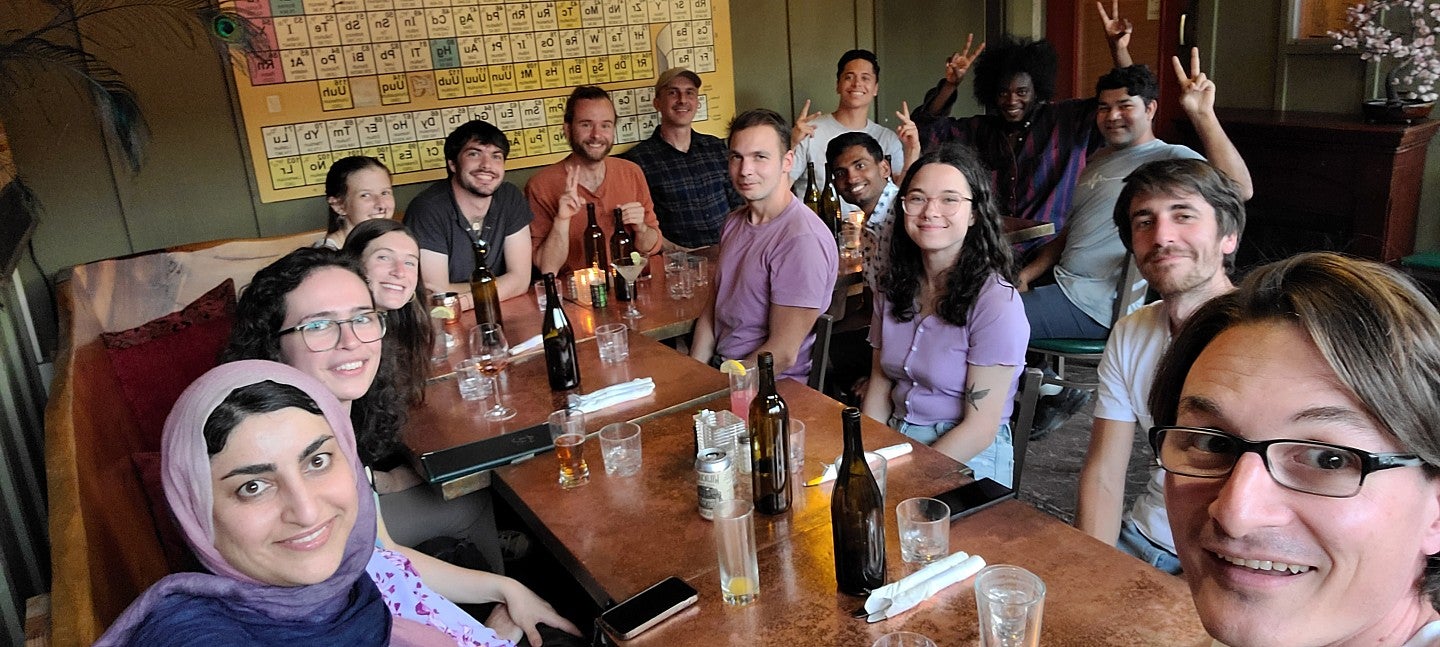
Dec. 4, 2024 - 12:01pm
As an undergraduate majoring in math and computer science at the University of Oregon College of Arts and Sciences, Audra McNamee didn’t initially find the creative outlet she was hoping for. But when she found the Comics and Cartoon Studies Program the Science and Comics Initiative at UO, a world of creativity and collaboration opened up for her.
McNamee, also a Clark Honors College alumna, graduated in 2022 and is now the program coordinator for the Science and Comics Initiative. The initiative, which blends STEM and Comic and Cartoon Studies, hosted a conference in August that brought together students and scientists to tell the story of the scientists’ research findings in a comics format, aiming to make scientific research more accessible for a general audience.
“I think science itself is so visual that it only makes sense to present it in a format where the visuals coexist alongside the words and it's all part of one thing, instead of separating these out into text and diagrams,” said McNamee. “I also think that comics are fun and engaging and bring sort of a joy and playfulness to science that can draw in new people.”
The Science and Comics Initiative recently teamed up with the International NeuroAI Conference and hosted a satellite workshop for scholars who were attending the conference at the University of Washington.
Lia Papadopoulos, a postdoctoral researcher who worked at the Mazzucato Lab, was the event coordinator of a days-long Eugene workshop.
“This is one place where I really think comics can make a difference – by encouraging us scientists to think creatively about how we can translate our research from an abstract idea into a concrete visual display of the key information,” Papadopoulos said. “The process of transforming a scientific idea into a piece of art – like a comic – can help us see our data or think about a problem in an entirely new way, which might even lead us to discover something that we hadn’t noticed before.”
Paige Bierstorff and Isabel Lopez, current UO students who previously participated in the Science and Comics Initiative, facilitated the comic workshop on August 10 – one of the many pieces to the UO satellite workshop.
Comic workshop attendees, which included UO students and researchers, participated in drawing exercises and discussed the components of a science comic. They then worked in groups to brainstorm how they would go about the process of transforming a scientific process or idea into a comic. Finally, they took abstracts from Neuro AI papers and turned them into comics of their own.
The process of transforming scientific papers into comics isn’t just a way to communicate complex ideas in a more digestible medium but also an opportunity to collaborate with other creative minds.
“It's no fun to do comics alone, so meeting other people has really impacted me,” McNamee said.
— By Kendall Baldwin, College of Arts and Sciences
